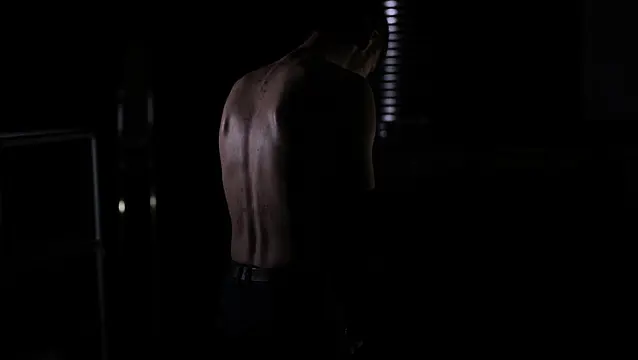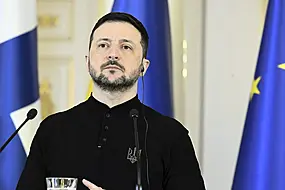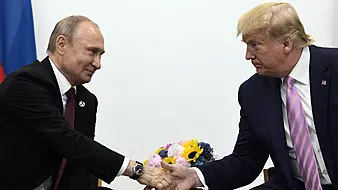Ukrainian authorities are investigating sites where torture allegedly took place in the city of Kherson.
More than two weeks after the Russians retreated, investigators say five torture rooms have been found in the southern city and at least four more in the wider Kherson region.
Ukrainians allege that they were confined, beaten, given electric shocks, interrogated and threatened with death.
Human rights experts warn that the allegations made so far are only the beginning.
The Ukrainian national police say more than 460 war crimes have been committed by Russian soldiers in recently occupied areas of Kherson.

When a dozen Russian soldiers stormed into Dmytro Bilyi’s house in August, the 24-year-old police officer said they gave him a chilling choice: hand in his pistol or his mother and brother would disappear.
He turned his gun over to the soldiers, who carried machine guns and had their faces concealed.
But they nevertheless dragged him from his home in the southern village of Chornobaivka to a prison in the nearby regional capital of Kherson, where he said he was locked in a cell and tortured for days, his genitals and ears shocked with electricity.
“It was like hell all over my body,” he recalled. “It burns so bad it’s like the blood is boiling … I just wanted it to stop.”
More than two weeks after Russians retreated from the city, accounts such as his are helping to uncover sites where torture allegedly took place in Kherson, which Kremlin forces occupied for eight months.
Oleksandra Matviichuk, head of the Centre for Civil Liberties, a local rights group, said: “For months we’ve received information about torture and other kind of persecution of civilians. I am afraid that horrible findings in Kherson still lie ahead.”

The Associated Press spoke with five people who allege they were tortured or arbitrarily detained by Russians in Kherson or knew of others who disappeared and endured abuse.
Sometimes, they said, the Russians rounded up whoever they saw – priests, soldiers, teachers or doctors – for no specific reason. In other cases, Russians were allegedly tipped off by sympathisers who provided names of people believed to be helping the Ukrainian military.
Once detained, the people said they were locked in crowded cells, fed meagre portions of watery soup and bread, and made to learn the Russian anthem while listening to screams from prisoners being tortured across the corridor.
Detainees were allegedly forced to give information about relatives or acquaintances with ties to the Ukrainian army, including names and locations disclosed in handwritten notes.
As a police officer with a father in the military, Mr Bilyi remained under the radar for several months of Russia’s occupation, until he said someone probably tipped them off. He spent four days in a cell with others, being pulled out for questioning and electric shocks.
Investigators accused him of having a Kalashnikov rifle – not just a pistol – and pressured him to reveal his father’s whereabouts. They then shocked him for half an hour a day for two days before releasing him, he said.
Ukrainian national police allege that more than 460 war crimes have been committed by Russian soldiers in recently occupied areas of Kherson.

The torture in the city occurred in two police stations, one police-run detention centre, a prison and a private medical facility, where rubber batons, baseball bats and a machine used for applying electrical shocks were found, said Andrii Kovanyi, a press officer for the police in Kherson.
When Igor was detained in September from the call centre where he worked, he was taken into a room, ordered to remove his shirt and to place his palms on the metal door to increase the flow of electricity and the pain of being shocked with a stun gun, he said.
The Russian soldier said: “Are you ready? Now you’re going to scream like a bitch … You will not get out of here, and we will kill you,” said Igor, who gave only his first name to protect his identity.
The 22-year-old, accused of providing Ukrainians with Russian military positions, said he was shocked by the gun along his back for two-and-a-half hours and then forced to stay awake in a chair all night.
Pictures on his phone, seen by the AP, show clusters of red circular marks lining the length of his back. He was freed after two days but not before writing a letter providing details about a relative of his uncle about whom the Russians wanted information.
Documenting the crimes in Kherson will be challenging because no other city this large has been occupied by Russia for so long, said Brian Castner, senior crisis adviser at Amnesty International.
“Evidence must be collected and preserved to maintain that chain of custody, so that when there is international justice, the evidence is lock-tight and perpetrators can be held to account,” he said.
Police in Kherson are investigating and collecting evidence. But more and more people are arriving daily, and the justice system is overwhelmed, local rights experts said.

In March, Dmytro Plotnikov’s friend was seized by Russians when he went to Kherson’s central square to run errands shortly after the occupation began.
Mr Plotknikov knows of three other people who were captured and released by Russians, one of whom still had visible bruises on his body more than a month after being freed, he said.
But since the Russians left Kherson, what concerns him most are the Ukrainians who collaborated with them and remained.
In May, Mr Plotnikov’s neighbour posted a photo of his sister and her address on a Russian chat group, he said.
His sister is outspokenly pro-Ukrainian, and the neighbour accused her of spreading hate about Russian people, he said. Had the Russians seen it, they might have come to her house and arrested the family, he added.
Ukrainian police have spoken to the woman, but she remains in the community, Mr Plotnikov said.
“They should be punished,” he said. “I am ashamed that such people are around … why in the 21st century (can) you can be tortured for your pro-Ukrainian position, for your love of the Ukrainian language and culture? I do not understand it.”







